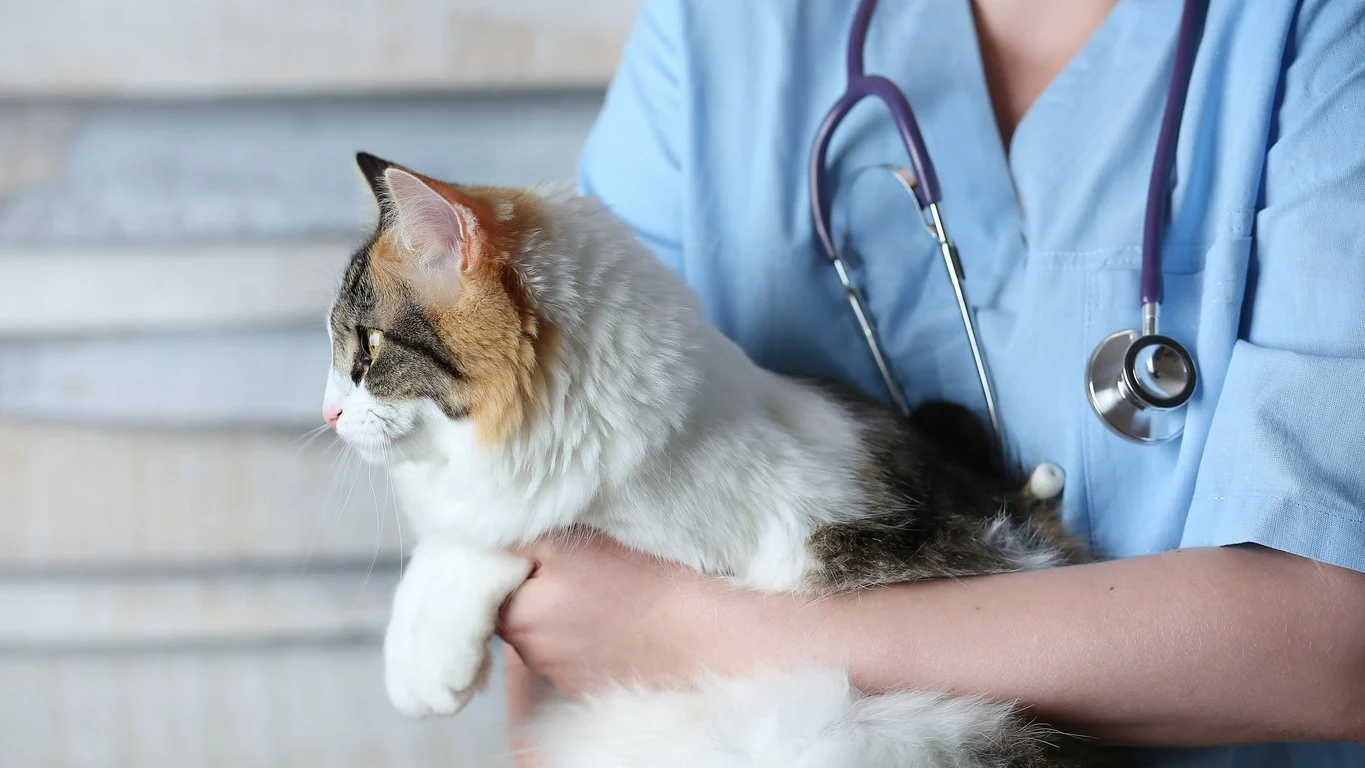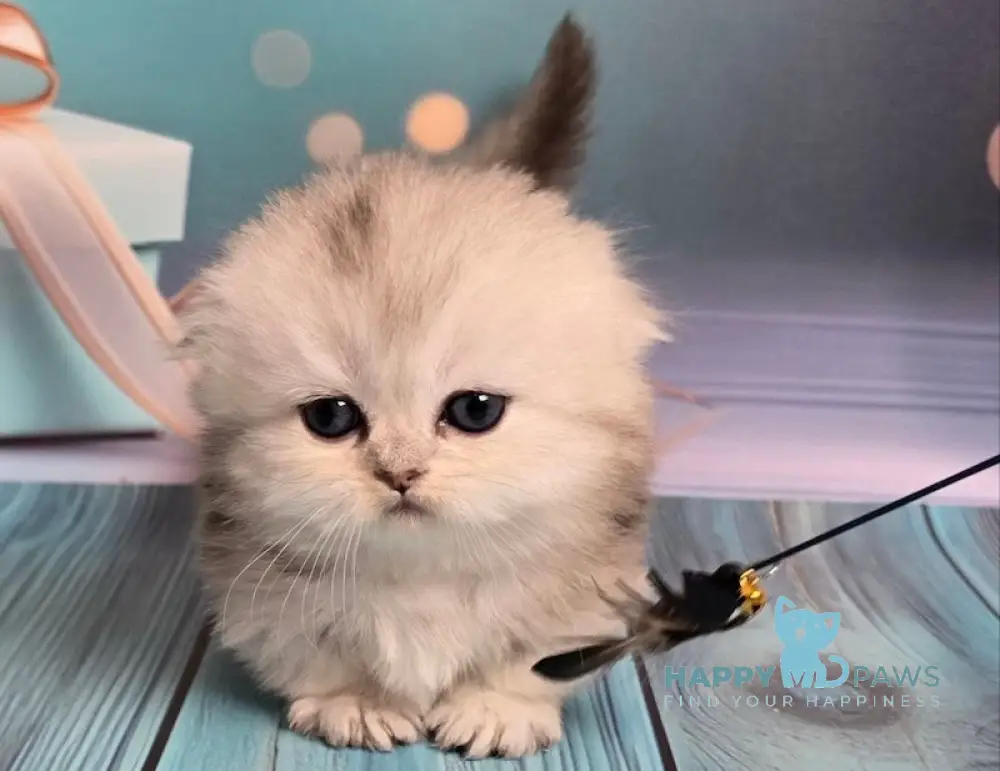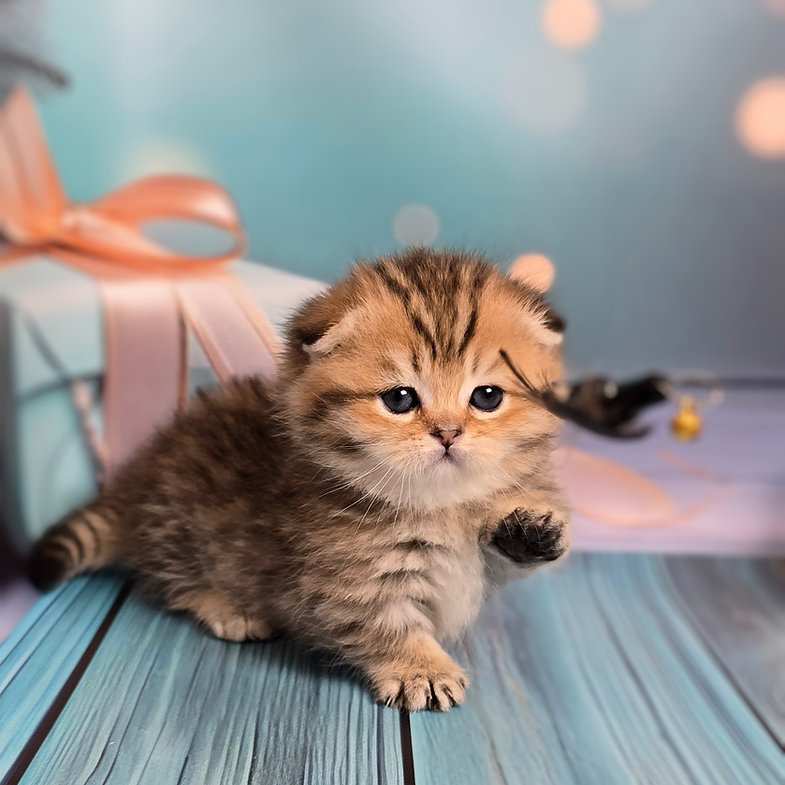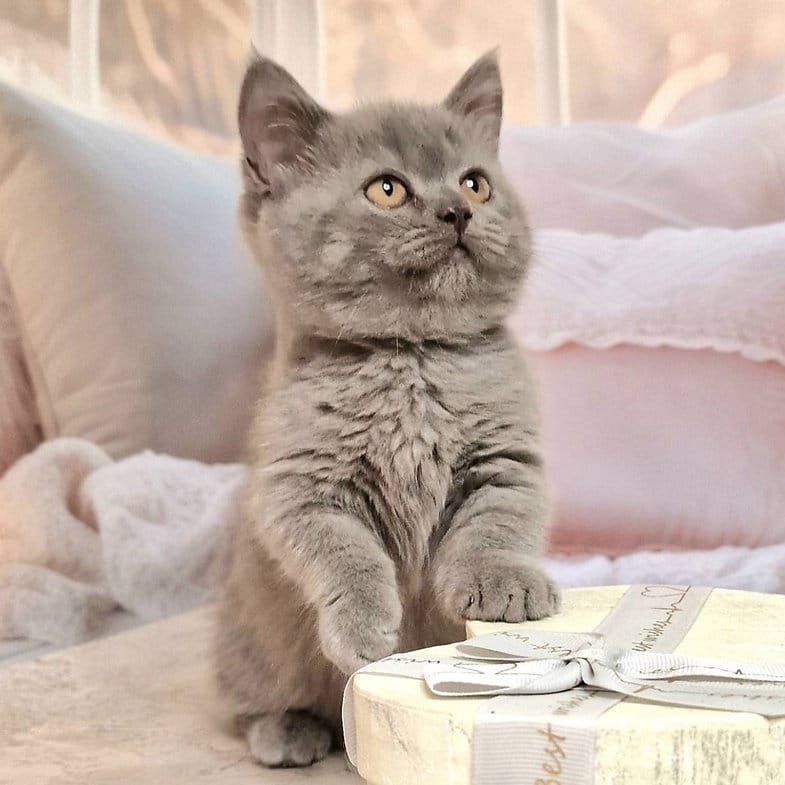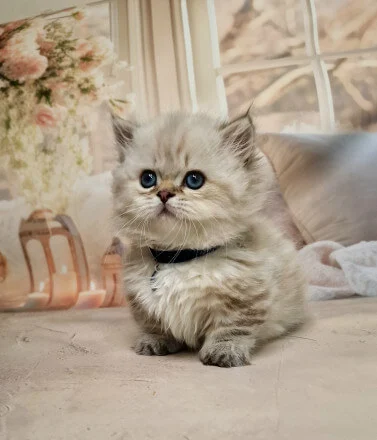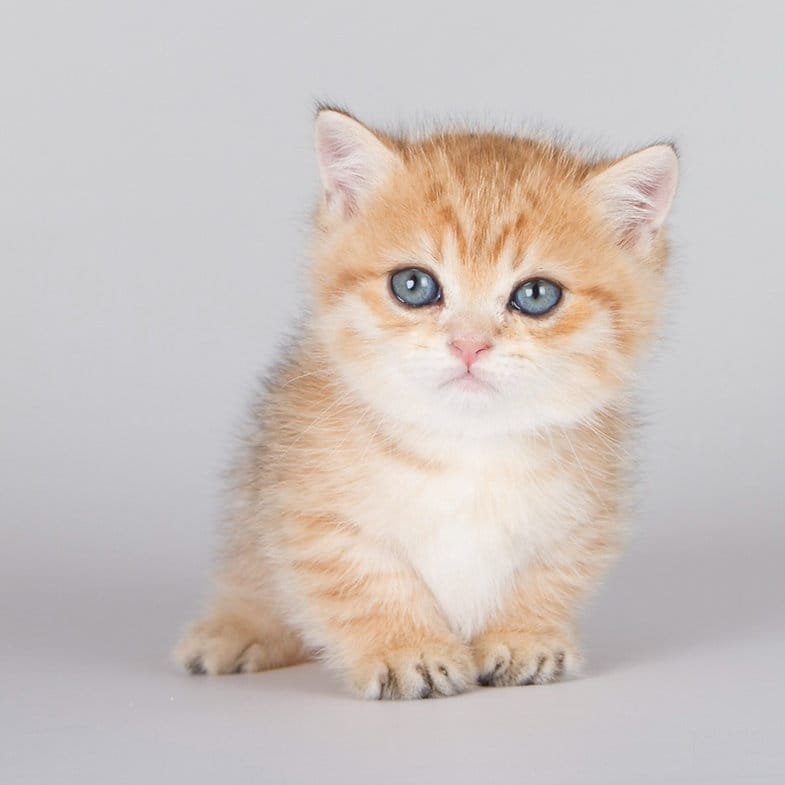Table of Contents
ToggleMunchkin Cat Health Problems
History of Munchkin Cat Breed
The origin story of the Munchkin Cat is a bit unusual. We will learn more about this breed in this blog post and the Munchkin Cat Health Problems they face.
That’s because they were discovered by accident in 1983. On her way to work, a teacher found a Munchkin cat under her car. She took the cat home, only to find out the cat was pregnant with kittens.
When those kittens were born… lo and behold, more short-legged cats!
The Munchkin cat was formally introduced in 1991 but not officially recognized as a breed until 1995.
That said, many cat associations still do not acknowledge the Munchkin cat as a breed. That’s because there’s some debate about whether or not it’s ethical to breed these cats due to their short legs, which result from a genetic mutation and may lead to munchkin cat health issues.
According to the World Cat Congress, only the International Cat Association (TICA) and the Southern African Cat Council currently recognize the Munchkin Cat as a breed.
Munchkin Kittens For Sale
Introduction to Munchkin Cat Health Problems
Because this breed is relatively new to the cat scene, there are still many unknowns regarding the health problems of Munchkin cats.
Due to the genetic mutation that results in the short legs of these cats, Munchkins may be more likely to develop certain health problems. This is particularly true for Munchkins who are bred with other cats that have munchkin cat health issues, like Scottish Folds.
We’re going to cover some of the health conditions that a Munchkin cat may face, many of which are also common health problems for cats in general.
In particular, we’ll discuss:
- Hyperthyroidism
- Osteoarthritis
- Spinal problems
- Uremia
- Pectus excavatum
Fortunately, some of these conditions can be managed simply by learning how to take care of cat health, which we’ll also talk about.
Why Munchkin Cats are Prone to Health issues
As we mentioned earlier, there is still some debate about whether Munchkin cat health problems are due to the genes that give Munchkin their short legs.
Munchkin cats must be bred with non-Munchkin cats to reproduce. That’s because the gene that gives Munchkin cats their short legs is known as a lethal gene. If two Munchkins are bred with one another, they will produce non-viable offspring.
Which is, unfortunately, a fancy way of saying that any kittens that two Munchkin cats produce won’t live.
As a result, breeders are not always certain whether the health problems of Munchkin cats are due to the Munchkin parent or the non-Munchkin parent.
That’s not to say, however, that Munchkin cat health problems don’t exist. Just like any other cat, Munchkins may be susceptible to developing certain health conditions, which we’ll discuss below.
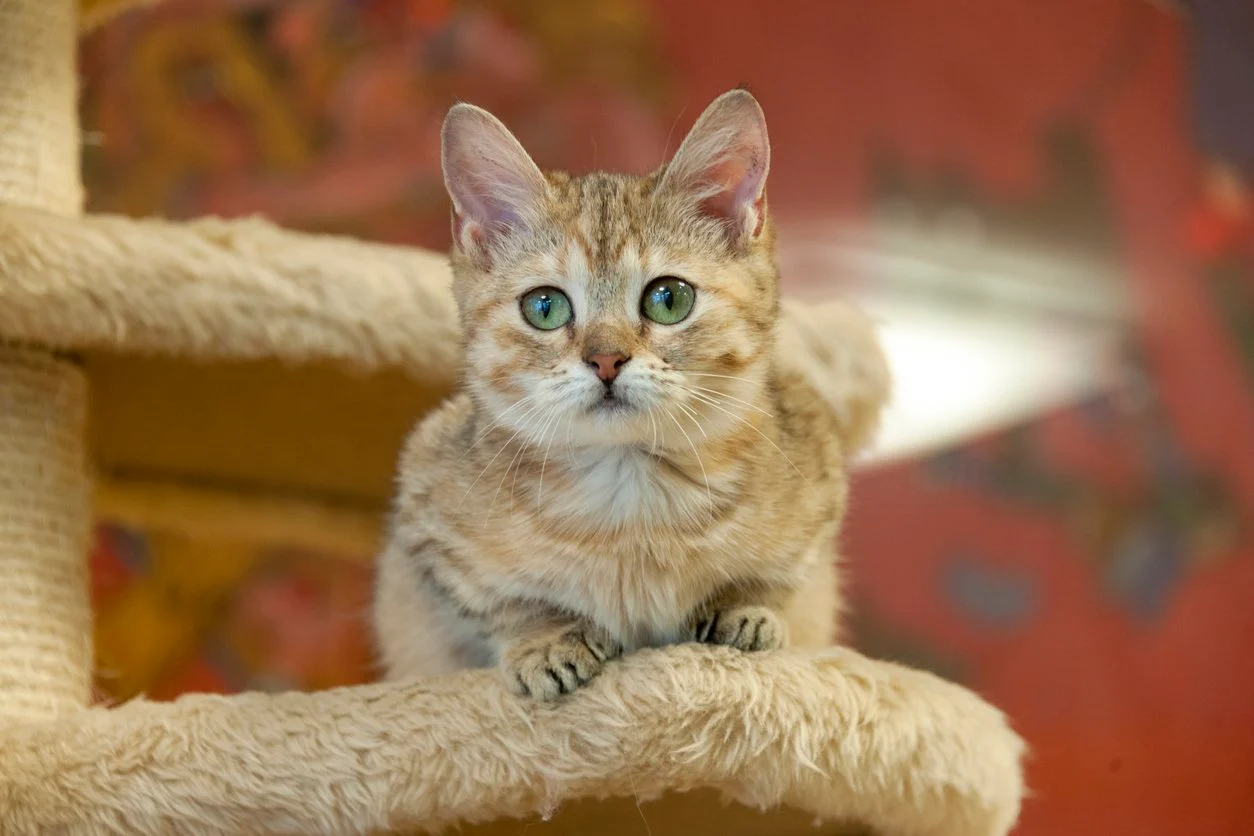
5 Common Munchkin Health Problems & Symptoms
Whether you’ve already adopted a Munchkin cat or are still considering it, you’ll want to know as much about this animal as you can. Asking do munchkin cats have health problems? Here are five common Munchkin cat health problems, as well as the symptoms of each condition.
1. Hyperthyroidism
You may have heard of hyperthyroidism before, as it’s a condition that humans can also experience.
Hyperthyroidism occurs when your cat’s thyroid goes a bit haywire and starts to produce too many hormones. This health problem most commonly affects older cats.
A Munchkin cat with hyperthyroidism may experience some of the following symptoms:
- Weight loss
- Increased appetite and thirst
- Increased meowing or other vocalization
- Vomiting and diarrhea
- Hyperactivity
- Unhealthy coat
If you notice any of these symptoms, bring your cat to the vet for an exam. If your vet suspects hyperthyroidism, she will likely run several blood tests, as well as order an X-ray or ECG.
For cats who do have hyperthyroidism, your vet may prescribe medications to reduce the production of thyroid hormones. Alternatively, or in addition, she may recommend surgery or changes to your cat’s diet.
Fortunately, this is one of the “lesser evils” on our munchkin cat health issues list. Cats who are treated for hyperthyroidism generally respond well and can live long, happy lives.
2. Osteoarthritis
Another Munchkin cat health problem is cat arthritis, which is a degenerative joint condition that causes your cat’s cartilage to wear away.
Cartilage helps protect your cat’s bones by cushioning her joints whenever she moves around.
So when this cartilage starts to wear away, it can cause your Munchkin cat’s bones to rub against one another, resulting in inflammation.
Yup, arthritis is as painful as it sounds. Serious ouch.
Unfortunately, this is a very common health condition for cats in general, especially as cats begin to age. But don’t think that younger cats are immune to arthritis. This condition can affect them, too.
If you notice any of the following symptoms, it may be time to take your cat to the vet for a check-up:
- Stiffness
- Reduced activity
- Lethargy
- Changes in personality, like no longer wanting to be pet or touched
- Decreased appetite
- Poor grooming habits
Since arthritis can’t be cured, treatment is generally focused on reducing pain and inflammation. This is why your vet may prescribe a non-steroidal anti-inflammatory (NSAID) for this Munchkin health problem.
Similarly, providing your cat with a joint supplement, like TRI-ACTA or TRI-ACTA H.A., can help maintain joint health and reduce pain and inflammation. Fortunately, feeding your cat a joint supplement can also serve as a great way to help prevent arthritis from developing in the first place. We’ll discuss using supplements as a preventative measure soon.
If your cat has a particularly bad case of arthritis, your vet may recommend surgery. In most cases, however, the focus will be on reducing pain and inflammation through medications and environmental modifications.
3. Spinal Problems
Next on our list of Munchkin cat health problems is a health condition that deals with the spine: lordosis.
Unfortunately, this condition is as bad as it sounds. Some might even call it the lord of all spinal problems.
Lordosis occurs when a cat’s spine muscles are too short. This causes the cat’s spine to curve, which is the main symptom of this condition.
If your Munchkin cat has lordosis, you’ll likely know it very early on. Many cases of this condition are diagnosed shortly after birth.
Lordosis can range in severity and is treated with surgery, when possible. Sadly, severe lordosis is notoriously difficult to treat and often leads to death, either during or shortly after birth, or through euthanasia.
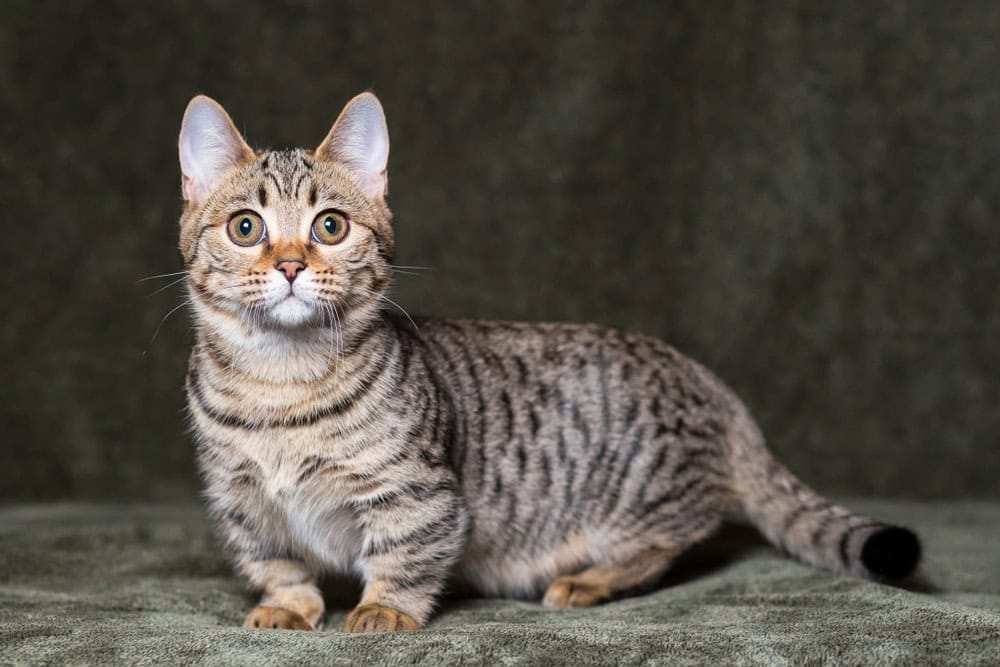
4. Uremia
The next Munchkin Cat Breed Health Problems on our list of Munchkin cat health problems is uremia. This condition occurs when there are high levels of urea in your cat’s blood.
Urea is a by-product of your cat’s metabolic processes that normally get filtered out of your cat’s body through her urine.
But sometimes, this waste product ends up getting concentrated in your cat’s blood, along with high levels of proteins and amino acids, causing uremia.
This can happen due to a variety of causes, including damaged kidneys, kidney stones, exposure to toxic substances, kidney inflammation, and more.
If you notice any of the symptoms below, your cat may have uremia:
- Appetite loss
- Lethargy
- Vomiting and diarrhea
- Foul-smelling breath
- Mouth ulcers
Your vet will diagnose this condition by conducting blood tests, such as looking at white blood cell count and performing a urinalysis.
And the treatment will vary depending on the underlying cause of uremia, but it’s likely your vet will prescribe some type of medication as treatment.
Unfortunately, it’s very common for cats to experience complications from uremia. These complications may range from seizures to cardiac arrest and may even be fatal.
5. Pectus Excavatum
Last on our list of Munchkin health problems is Pectus excavatum, which is a condition that causes a hollowed chest and is especially common in male cats.
This is yet another deformity, aside from the short legs, that may come with the territory of having a Munchkin cat.
Vets are often able to diagnose this condition at birth through a physical exam or CT scan, though the condition can develop later.
The symptoms of Pectus excavatum are listed below:
- Avoiding exercise
- Weight loss
- Coughing
- Pneumonia
- Caved-in chest
Unfortunately, Pectus excavatum affects how well your cat’s heart functions due to the concave nature of the chest.
Generally, this condition is treated through surgery.
Munchkin Cat Breed Health Problems Prevention Tips
Well, that last section was sort of a bummer, wasn’t it? We’re sorry about that. But before you leave the page in a fit of sadness, stick around to learn how you can prevent some of these Munchkin Cat Breed Health Problems from forming in the first place.
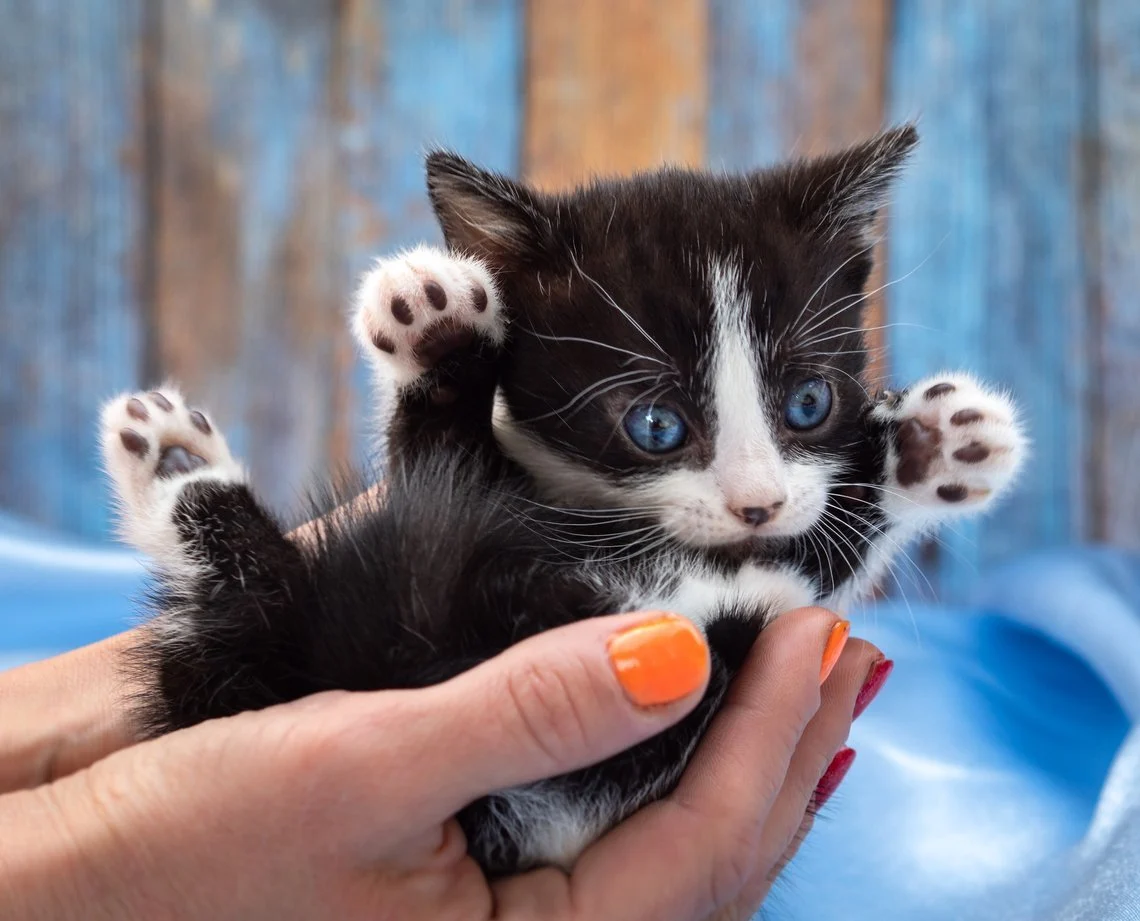
1. Joint Supplements
We’re going to discuss the benefits of cat supplements first.
Because joint supplements are sort of our jam.
And not just because we make them! Joint supplements can be a great way to reduce the likelihood that your Munchkin cat will experience painful joint issues, like arthritis.
That’s because certain active ingredients, like the ones listed in the table below, maintain cartilage health and reduce pain and inflammation in your cat’s body.
| Active Ingredient | The benefit of Active Ingredient |
| Glucosamine |
|
| Chondroitin |
|
| MSM |
|
| Hyaluronic Acid |
|
When you’re looking for a good joint supplement, you’ll want to make sure it is made up of as many active ingredients as possible.
Otherwise, you end up wasting money on what amounts to be an expensive, and relatively useless, cat supplement that’s full of fillers.
And we’re assuming you don’t want to do that.
Fortunately, you don’t have to look too hard to find the right joint supplement. TRI-ACTA and TRI-ACTA H.A. For Pets both have all active ingredient formulas. Plus, they’re tested for quality by a third-party manufacturer and Health Canada approved.
Your Munchkin cat is getting only the good stuff with these supplements.
2. Healthy Diet
Munchkin cats may look unique…
But fortunately, they don’t have any unique dietary needs.
That doesn’t mean you should ignore their nutrition though. Maintaining a healthy diet is key to ensuring optimal animal health, which can help you avoid some of those Munchkin cat health problems we discussed earlier.
In particular, a healthy diet can help prevent your cat from becoming overweight. That’s important because extra pounds can exacerbate conditions like arthritis.
Feeding your cat wet food as part of a healthy diet can also help keep her hydrated, which maintains kidney health. Thus, proper hydration can help prevent conditions like uremia from forming.
Finally, feeding your cat a nutrient-rich diet supports cat bone health. And this is pretty significant for the Munchkin cat since three out of the five health conditions we mentioned had to do with bones!
The good news is that most cat foods supply all the necessary vitamins and minerals for healthy bones, such as:
- Calcium
- Phosphorous
- Vitamin A
- Vitamin C
- Vitamin D
In some cases, however, it may be necessary to supplement your cat’s diet, particularly if she is deficient in a specific vitamin or mineral.
Before feeding your cat a new vitamin or mineral supplement, always check in with your vet. Too many of certain nutrients can be toxic for your cat.
And the last thing you want is to accidentally do more harm than good through your supplement!
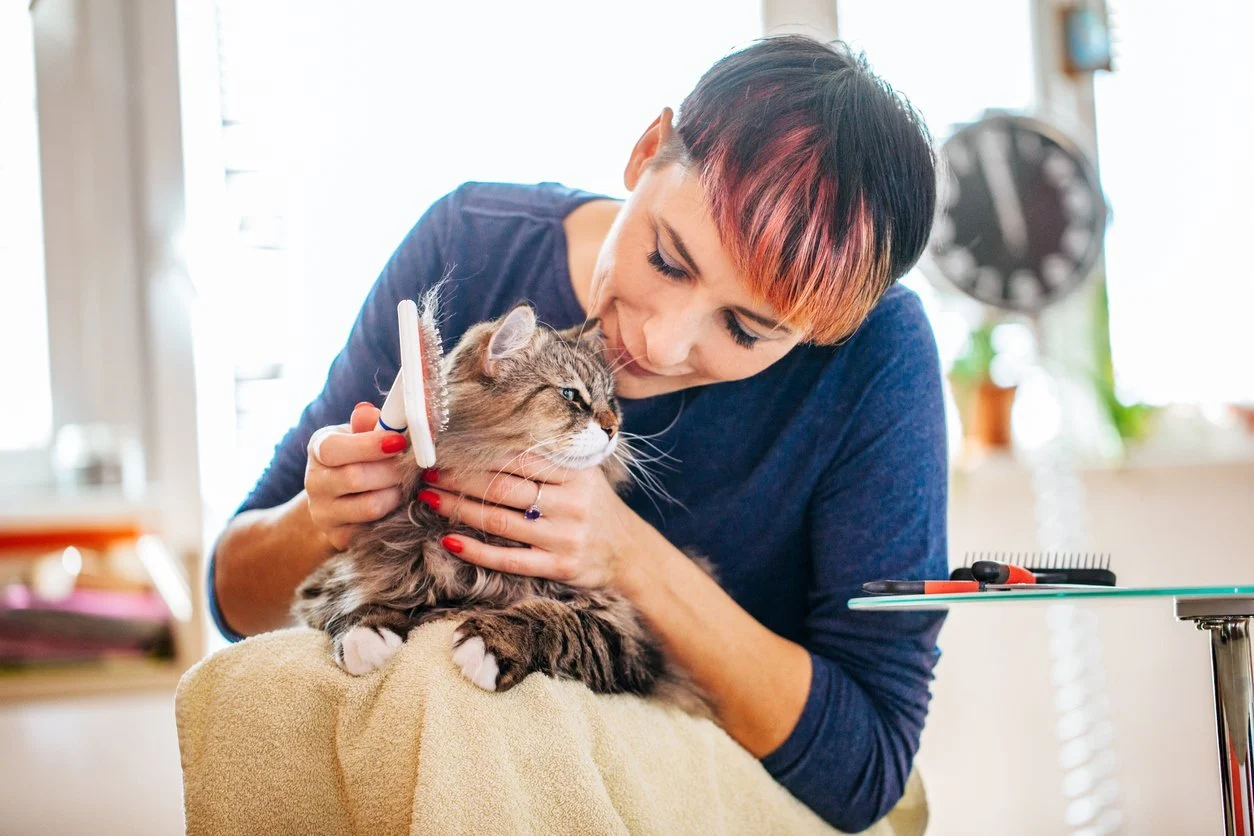
3. Grooming & Care
A Munchkin cat’s short legs make her absolutely adorable.
But they may also introduce some grooming challenges.
And if you think grooming does not play a role in Munchkin health problems, you’d be mistaken.
Just try to imagine cleaning that hard-to-reach spot with short little legs and a painful joint condition like arthritis.
Not a nice thought, is it?
But you can make things easier on your cat and help her avoid getting into uncomfortable, or even downright painful, situations.
Be sure to brush your cat’s fur approximately once a week. This not only keeps your cat’s fur nice and shiny but also reduces shedding.
In other words, less vacuuming for you!
Similarly, trim your cat’s nails regularly to protect your cat from getting painful broken nails. Alternatively, you can provide your cat with a scratching post, which not only keeps her nails shorter but also provides her with another healthy outlet: exercise!
We’ll discuss this measure next.
4. Exercise
We discussed the importance of keeping your cat at a healthy weight when we talked about food.
And aside from a healthy diet, what’s another great way to keep your cat from packing on the pounds and developing Munchkin health problems?
Exercise, of course!
In addition to reducing extra weight, exercise helps strengthen bones, ligaments and tendons. This helps keep your Munchkin cat’s joints strong, reducing the likelihood she’ll experience health conditions like arthritis.
In general, you should aim to get your cat about 30 minutes of exercise per day. But if you’ve ever had a cat before, you know that’s not as easy as it sounds.
Cats like to sleep. A lot.
So you’ll have to find ways to encourage exercise. Fortunately, encouraging your cat to exercise is a great way to bond, since cat exercise often involves play.
Of course, not all cats are going to like getting exercise in the same ways. You may need to experiment with your cat to see what she responds to the best.
| Activity | Equipment Required |
| Go for a Walk |
|
| Stretching |
|
| Playtime |
|
Munchkin Cat Health FAQ’s
What are Scottish Fold Munchkin health problems?
A Scottish Fold Munchkin is a cat that has one parent that is a Scottish Fold and one parent that is a Munchkin cat. As such, Scottish Fold Munchkin health problems may exist depending on the genes of the kitten’s parents.
In particular, Scottish Fold cats are susceptible to painful health conditions, such as severe osteoarthritis, due to the genetic mutation that gives the cat its folded ears. Thus, a Scottish Fold Munchkin may experience the same affliction.
Is breeding Munchkin cats cruel?
While short-legged Munchkin cats can happen by accident due to a genetic mutation, breeding two Munchkin cats together can be lethal. Additionally, Munchkin cats may experience certain health conditions that cats with normal-sized legs do not experience.
As a result, some cat associations deem breeding Munchkin cats to be unethical and thus do not recognize them as a breed.
How long do Munchkin cats usually live?
Like most other cat breeds, you can expect your Munchkin cat to live for approximately 12 to 15 years. If you plan to adopt a Munchkin cat, make sure you recognize the long-term commitment you are making to another living being.

